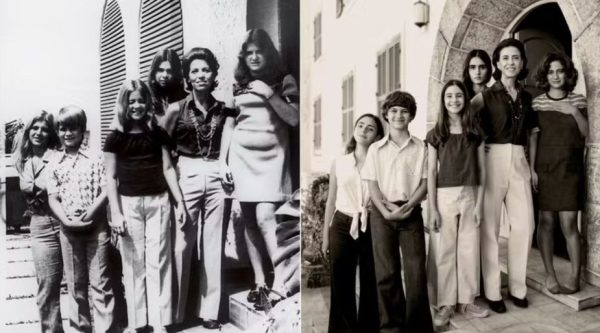The seats are packed, a sea of eager faces swaying in anticipation, as flags from various samba schools flutter above the crowd. Brilliant overhead lights bathe the scene in a golden glow, illuminating dazzling floats and glittering costumes. The thunderous beat of the drums pulses through the air, charging it with infectious energy. Just when the energy feels like it’s reached its peak, an announcement echoes through the Sambadrome: “Parabéns, Brasil – o Oscar é nosso!” (“Congratulations, Brazil–the Oscar is ours!”). The crowd erupts in a thunderous roar, their cheers of celebration reverberating through the arena.
I’m Still Here (2024) made history by winning both the Golden Globe Award and the Oscar for Best International Feature, a first for Brazilian cinema. While the film’s success was joyously celebrated during Carnival, the story it tells is far from lighthearted. Beneath the festive fanfare lies a powerful reminder of Brazil’s turbulent past–a narrative that goes far beyond its borders and compels the global audience to reflect on the country’s history.
The film, both deeply personal and politically charged, traces the life of Eunice Paiva, whose husband, Rubens Paiva, was abducted during Brazil’s 1964-1985 military dictatorship. A federal deputy who opposed the authoritarian regime, Rubens was brutally tortured and ultimately killed. Through Eunice’s eyes, the film captures raw grief, anger, and loss, all while she is faced with the responsibility of raising her five children.
The personal tragedy endured by Eunice reflects a broader national crisis in Brazil that began with the military’s seizure of power in 1964, when President João Goulart was forcibly removed under the pretext of combating communism. Seizing on anti-communist sentiment, the military accused Goulart of aligning too closely with Marxist ideologies. With foreign support, the military took control and created a repressive government that curtailed the basic liberties of the people. They banned political parties, censored the press, and imprisoned or tortured people who spoke against them, without trial. While the regime maintained its grip through fear and suppression, it also pursued aggressive economic policies and although the economy initially experienced rapid growth, it came at a grave human cost. As time went on, Brazil’s debt gradually increased and many people were swept under the poverty line.
By the late 1970s, these economic problems as well as widespread protests forced the dictatorship to return power to the people. In 1985, Brazil elected a civilian president, and in 1988, a new democratic constitution was created. However, for many families, the return to democracy did not erase the psychological wounds of the dictatorship. The trauma persisted, passed down through stories left unfinished, absences never explained, and a lingering distrust in government institutions.
The Paiva family suffered a similar fate after the abduction and disappearance of Rubens Paiva. Although the family eventually returned to normalcy, Reubens’ fate remained a government secret for 25 years, and his body was never recovered. Determined to seek justice for Reubens, his wife Eunice became a human rights lawyer, dedicating her life not only to supporting her family but also to advocating for the rights of indigenous communities and victims of the regime. One of her sons, Marcelo Rubens Paiva, wrote a memoir about Eunice’s story titled I’m Still Here, which was published in 2015, after which it was adapted into the 2024 movie.
Powerful stories like I’m Still Here play a vital role in preserving historical truth and raising awareness, reminding us of the dangers of repeating past mistakes. The movie comes at a much-needed time, since many of the current generation are being blinded by fanatic nationalistic fervor, unaware of the threat a dictatorial regime poses to basic rights and liberties. Through impactful storytelling and a moving soundtrack, featuring the many musicians who were imprisoned during the regime, the film captures the devastation of authoritarian rule from the citizen’s perspective, echoing the struggles faced by people around the world when democracy is threatened.
One of the film’s most powerful moments is a scene inspired by a real photograph of the Paiva family, taken during a journalist’s visit to their home. The quiet image captures a family scarred by loss yet defined by resilience and quiet defiance. It is a stark reminder that even in the face of brutality, life endures.

(R). (Source: Portal Tela)
Photographer: “Não precisa sorrir.” (You don’t need to smile)
Eunice: “Porque não?” (Why not?)
Photographer: “O Editor pediu (…) uma foto menos feliz.” (The Editor asked (…) for a less happy photo.)
Eunice: “Nos vamos sorrir” (We will smile.)
Eunice: (to the children) “Sorriam!” (Smile!)

